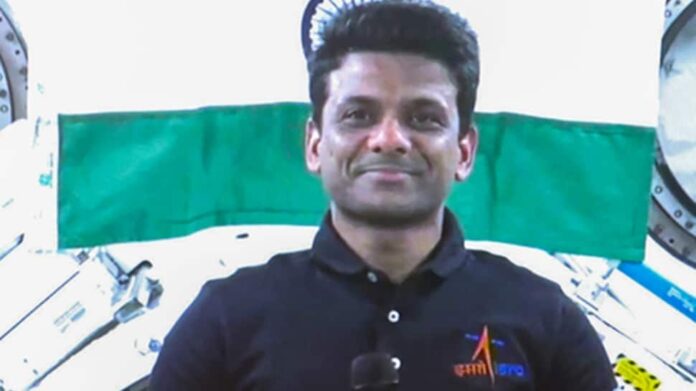NEW DELHI: Shubhanshu Shukla, the first Indian astronaut on the International Space Station (ISS), on Thursday had some interesting conversations with students in India, who bombarded him with questions like what do astronauts eat, how does one sleep in space and what happens if someone falls sick. The students also sought to know about the benefits of the space programme and what part of the space visit is most enjoyable.
During the interaction, Shukla described the launch experience of the Axiom Mission 4 as “amazing” and “dynamic”. “It is fun actually, because in space there is no floor and no ceiling. So if you were to come and visit the station (ISS), you would find someone sleeping on the walls, someone on the ceiling,” he told students.
When asked what astronauts eat, the Lucknow-born astronaut said most of the food is pre-packaged, and adequate care is taken to ensure that astronauts have enough nutrition. “Different food items are laid down and astronauts get to taste all of those and whatever they prefer is packed,” Shukla responded.
When a student asked what happens if someone falls ill in space, Shukla replied: “It is so easy to float up and tie yourself to the ceiling. The challenge is to be found at the same place where you slept at night and to ensure that we tie our sleeping bags to ensure we don’t float away to some other place”.
When a student asked about the impact of space on mental health, Shukla said modern technology has ensured that astronauts get to connect with family and friends. “It helps a lot,” he said.
Inside the weightless environment of space, digestion slows down. Shukla also described how fluid shifts in the body affect digestion.
“My body has now kind of adapted to microgravity, but when I return to Earth, my body would have to readapt to gravity. This is a challenge again,” he said.
Meanwhile, Shukla is working to develop a brain-computer interface in the orbital lab, said NASA on Thursday.
He is on a 14-day scientific expedition on the ISS as part of the Axiom-4 mission, along with three other astronauts from the US, Poland, and Hungary.
The crew is conducting around 60 scientific studies and commercial activities in microgravity representing 31 countries, including the US, India, Poland, Hungary, Saudi Arabia, Brazil, Nigeria, UAE, and nations across Europe.
India, through ISRO, has contributed seven carefully selected studies to the mission.
